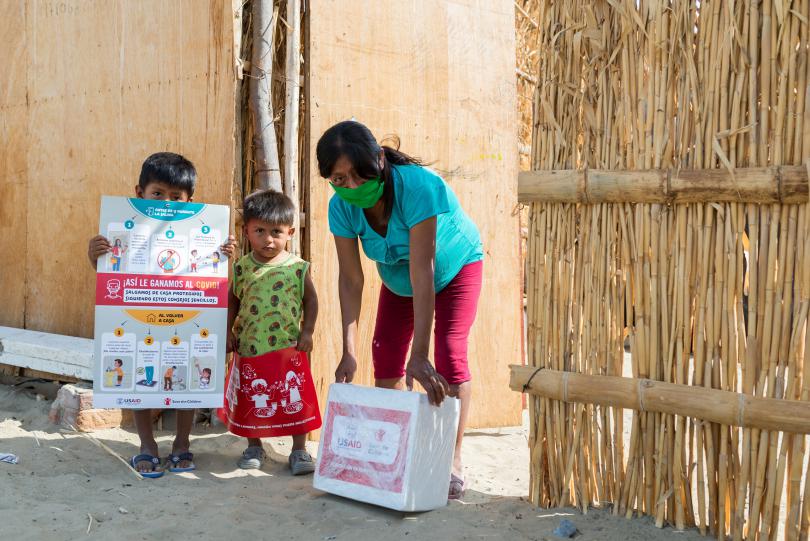CELESTINO, LEADING THE FIGHT AGAINST COVID-19 IN LA CAMPIÑA

The COVID-19 pandemic worsened the situation in La Campiña community, located in Catacaos district, Piura, Peru. The area does not have access to drinking water due to the disaster caused by El Niño in 2017. Some time ago, Celestino Aquino accepted the position of lieutenant governor, knowing that it would not be easy. Today, the hygiene needs of the community have become crucial if they are to prevent the spread of coronavirus infections. Celestino works tirelessly to respond to this challenge amid the new health emergency.
"It is my responsibility to watch over all the people living in the community. For example, in this pandemic, I must make sure they are safe. Some do not comply with what the government says. (…) Yes, many needs have arisen. Before, you could go out to work normally, but now we have to try and stay safe; take care of ourselves..."
Celestino rises early to chase his not unsubstantial goals for the day. When he took the mantle as lieutenant governor, he knew it would not be easy. La Campiña was founded more than 50 years ago, but in its beginnings, it was just a hamlet with few families. Today it houses around 500 families. Most of the inhabitants are work in agriculture, either on their own family-owned plots or working part-time in nearby grape plantations.
In 2017, due to great damages caused by El Niño, La Campiña stopped having access to drinking water. Celestino has long been liaising with the regional water provider and trying to find a permanent solution to this, but so far has not been successful.
“Before 2017, we had access to water, but now we still don’t. Water is the most important thing for cleaning, for hygiene. In this pandemic, we can’t combat COVID-19 having no water”.
KITS AND INFORMATION TO COMBAT THE PANDEMIC

Celestino met Save the Children after El Niño hit his community. To prevent similar loses because of possible future disasters, he began learning more about Disaster Risk Management with our organization. Other community leaders, residents and him have received training related to emergency prevention plans and actions. This way, they are now better prepared for any emergency.
In the face of the current health emergency, Save the Children saw the urgent need to support La Campiña community in new ways. This is how Celestino became president of the Vigilance Committee, in charge overseeing the monthly reception of hygiene kits that include hand soap, bleach and detergent; and also, to support overseeing weekly water truck deliveries for every family in the community by Save the Children.
"The delivery of the kits is very useful because it helps us wash and disinfect all our things. Right now, the neighbours are using them very well..."
Celestino highlights that, in addition to the delivery of kits and water, Save the Children's support is especially important for receiving information. The town’s speaker system is being used to inform the residents about prevention measures against COVID-19 and domestic violence.
“Thanks to the support and training that Save the Children gave us, we have been able to guide our children so that they can be more careful”. Celestino still has a lot to do. However, he is aware that mutual collaboration is essential to generate true long-term change.
ABOUT OUR INTERVENTION
The project “Prevention in our hands: healthy and protected families” is implemented by Save the Children, with the support of USAID’s Bureau for Humanitarian Assistance (BHA). It proposes an integrated response to the health emergency in Peru, which includes WASH (water, sanitation, and hygiene) activities, prevention of gender violence and protection of children. The project’s areas of intervention include four districts, divided between Lima and Piura. Both regions have been hit hard by COVID-19, with children, women, and those with restricted access to basic services such as water and electricity being the most affected.


